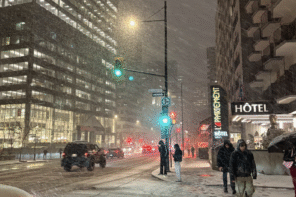As the conditions of the COVID-19 pandemic changed, McGill residences introduced and adjusted policies to keep students and residence faculty safe while also allowing some return to normalcy. Since students started moving into residences in August, McGill has frequently reviewed and updated their policies; first year students, however, have expressed frustration and confusion regarding the lack of clarity and inconsistency of COVID-19 policies across residences.
McGill’s Student Housing and Hospitality Services email updates to students in residence as residence COVID-19 restrictions change. There is also a page on the Student Housing and Hospitality Services website to access the rules. This page, however, has not been updated since September 24, 2021. According to the most recent email, sent on November 1, each student is allowed to have one guest from the McGill student community in their room, but if the guest is exhibiting flu-like symptoms they “will be asked to leave.” Additionally, guests are not allowed to have “extended stays,” but the definition of an extended stay is not provided.
While McGill does not mandate COVID-19 vaccines for students living in residence, they do “encourage [students] to make sure [their] guest is fully vaccinated.” In a statement from McGill administration, they stated that their policies “are reviewed and updated throughout the academic year based on the COVID-19 situation at the time”
As the Bull and Bear spoke to students about their residence’s COVID-19 policies, it became clear that a significant portion of students are unsure of the exact rules and regulations of their residence. A student living in New Residence Hall told the Bull and Bear that she only learned about the rules when she “did something wrong and then learned it was wrong.”
This student also mentioned that the method of communicating rules to students makes it difficult to keep track of them, because every month McGill will send “ineffective” and “very long emails” that students are expected to read and internalize. To find the updated rules, students must search through their emails, rather than having all the rules and the consequences for breaking them in one accessible place.
The inconsistent enforcement of COVID-19 regulations across residences likely contributes to confusion about the rules. One clear example of this is the rule regarding how many people can sit at a table in cafeterias. A student from Upper Residence reported dining halls such as Bishop Mountain Hall and Royal Victoria College are known to be more relaxed and allow large groups of people to sit at the same table.
In contrast, Danni Friesema, U0 Arts, from Carrefour Sherbrooke and Ryan Coultrip, U0 Engineering, from Campus 1 reported that the Campus 1, Carrefour Sherbrooke, and New Residence Hall cafeterias have been enforcing the three per table maximum rule. Students at Campus 1 have even reported security physically pulling tables apart while they’re eating if the seating rules are being broken. Coultrip, who is VP of the Campus 1 Residence Council, informed the Bull and Bear that the three per table maximum will eventually be raised to ten; however, it is unclear when this update will come into effect and how it will be enforced across residences.
The rules even vary within residences – Coultrip explained that the enforcement of rules “varies greatly between who’s working security.” For example, if residents exceed the four person maximum in the Campus 1 gym, “certain security people will just come down and say ‘in 20 minutes, when I come back, you guys have to be gone,’” whereas “other security guards will come down and write down the names of everyone” to issue them a strike without giving a warning. This strike is part of the three strike rule at Campus 1, where three strikes results in an eviction.
One student living in New Residence Hall expressed frustration that rules in residence are stricter than those of the province, saying that the harsher rules “can be more damaging than good” because they further restrict students from seeing their friends, which in university “behave almost like your family.”
For instance, gatherings in residence dorm rooms are limited to no more than “one guest per student per room,” as stated in an email from McGill Student Housing and Hospitality Services. In Québec, however, people are allowed to be gathered inside in groups of ten. A security guard working in Upper Residence commented on the seemingly arbitrary rules regarding gathering in residence, saying “[he’s] seen pictures of everyone hanging out together, [in] classes together, [eating] together” but they can’t gather in their rooms with these same people. If students can congregate in larger groups outside of their residences, there are concerns about the effectiveness of the strict gathering restrictions of McGill residences in preventing the spread of COVID-19.
When asked what McGill could do to make residence a more COVID-19 safe place, Friesema shared that she believes that the current policies are fine and that “having mandatory vaccinations [in residence]” was the only thing she could think of that would really increase safety. In response to questioning about vaccine mandates in residence, McGill administration said that “unless the Quebec government mandates vaccination, [they] cannot, at this time, legally require vaccination for residence students.” As the province continues to ease restrictions, including the recent reintroduction of dancing in bars and clubs, students are eager for residences to review and update their COVID-19 policies.








